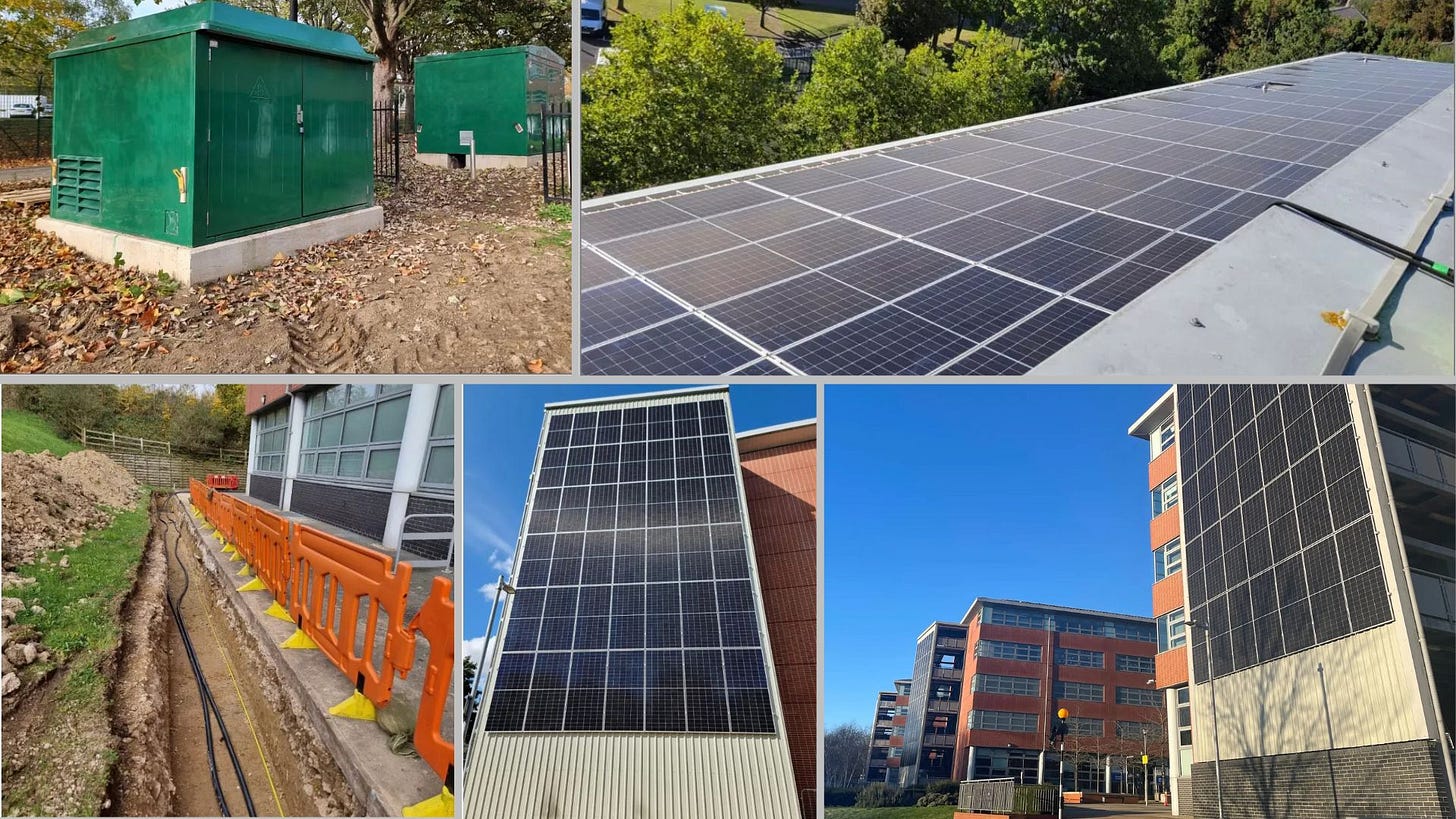MidKent College aims for zero
What can one college do to make itself sustainable?
MidKent College is in the process of extensive works that should make both of their campuses achieve net zero by 2030. Steven went to the Gillingham campus to meet Martin Peat, the Executive Director for Finance and Estates, who is leading the charge for sustainability within the organisation, and Warda Ahmed, Sustainability Officer at the college, to learn more.
MidKent College Zero, as the organisation is terming it, is the target to be carbon neutral by 2030. Martin explains how the college measured their carbon footprint about four years ago and “found it was about 4,400 tonnes of carbon being produced net each year” across their Gillingham and Maidstone campuses. The biggest undertaking of the project is the one that is the immediate focus, “which is to basically reduce our reliance on fossil fuels, i.e. gas, and then produce as much electricity as we can on site.” The intent is to buy any additional electricity needed from a green, renewable energy source. A significant part of this is finding alternative solutions to their gas boilers. “That will reduce our carbon footprint by 70% alone”, says Martin.
I ask him how such a large and potentially expensive project came about. “Our chair of governors at the time, Martin Cook, basically challenged the college. He asked what we were doing about the green agenda. It was the same time that our funding body from the Treasury issued out the Further Education Climate Action Roadmap.” It seemed feasible that the government would help fund some of that work “because, as you know, most further education colleges don't have any money at all.”
Keep reading with a 7-day free trial
Subscribe to Local Authority to keep reading this post and get 7 days of free access to the full post archives.



